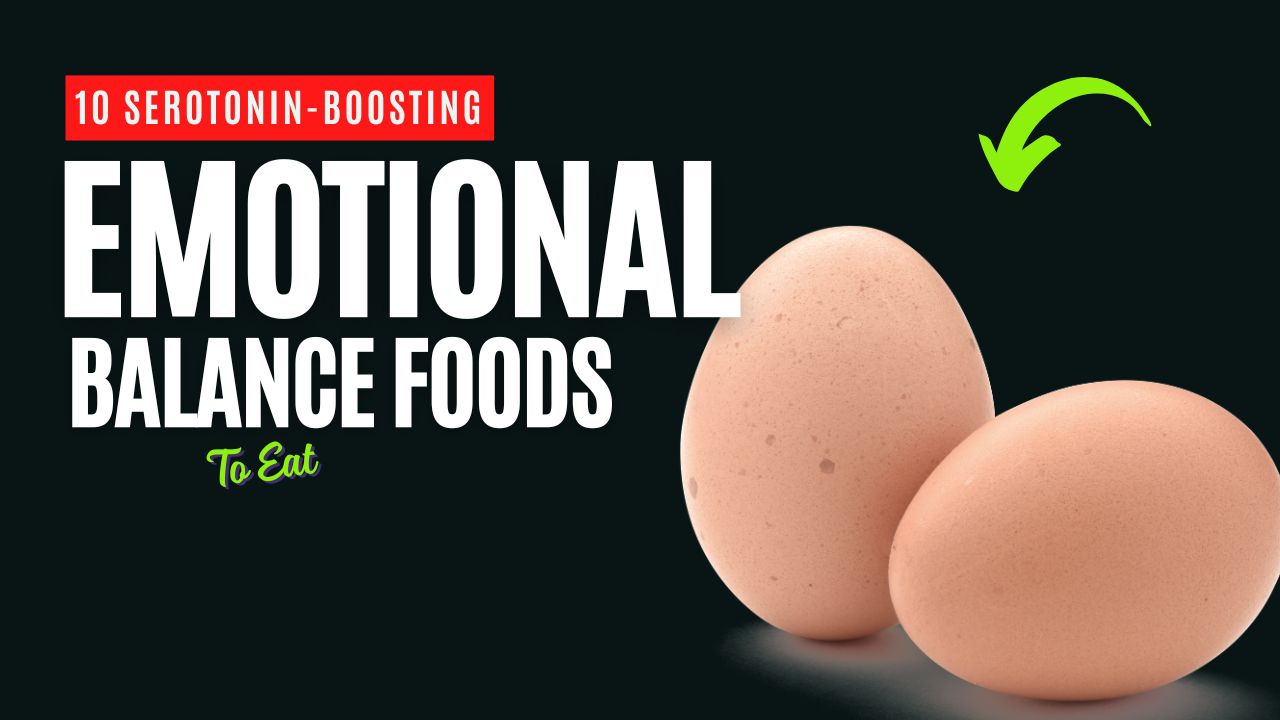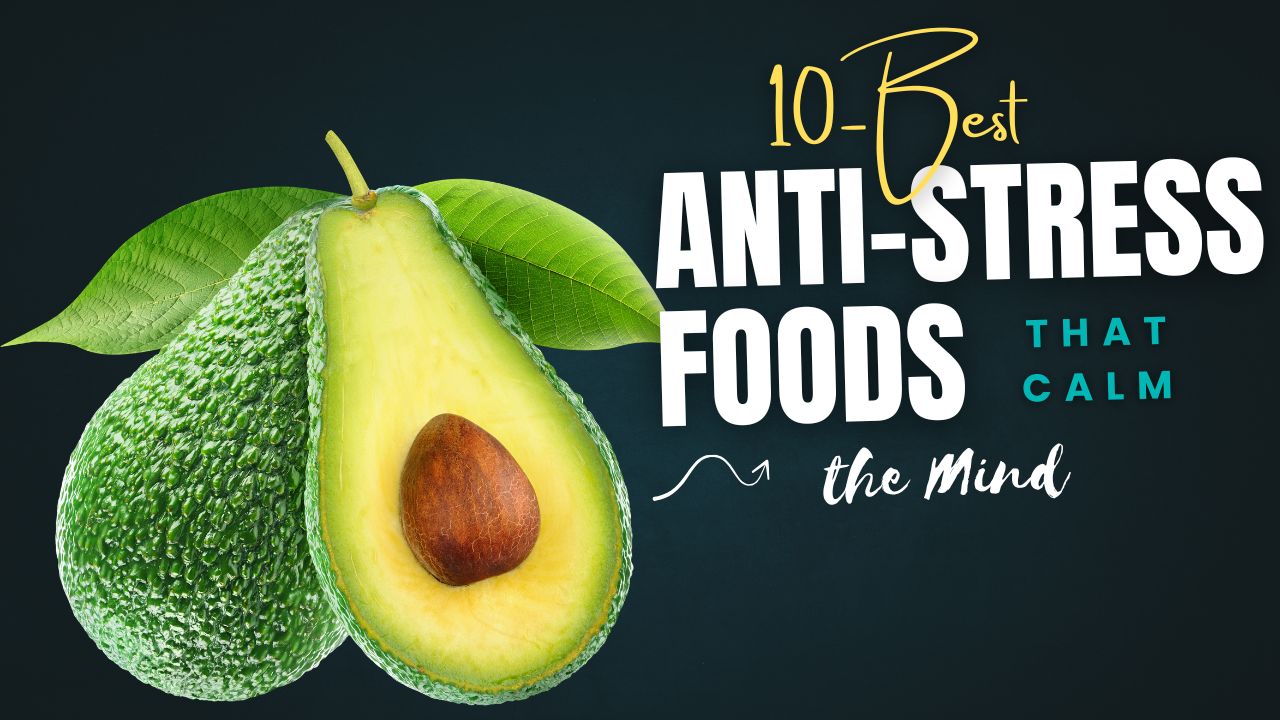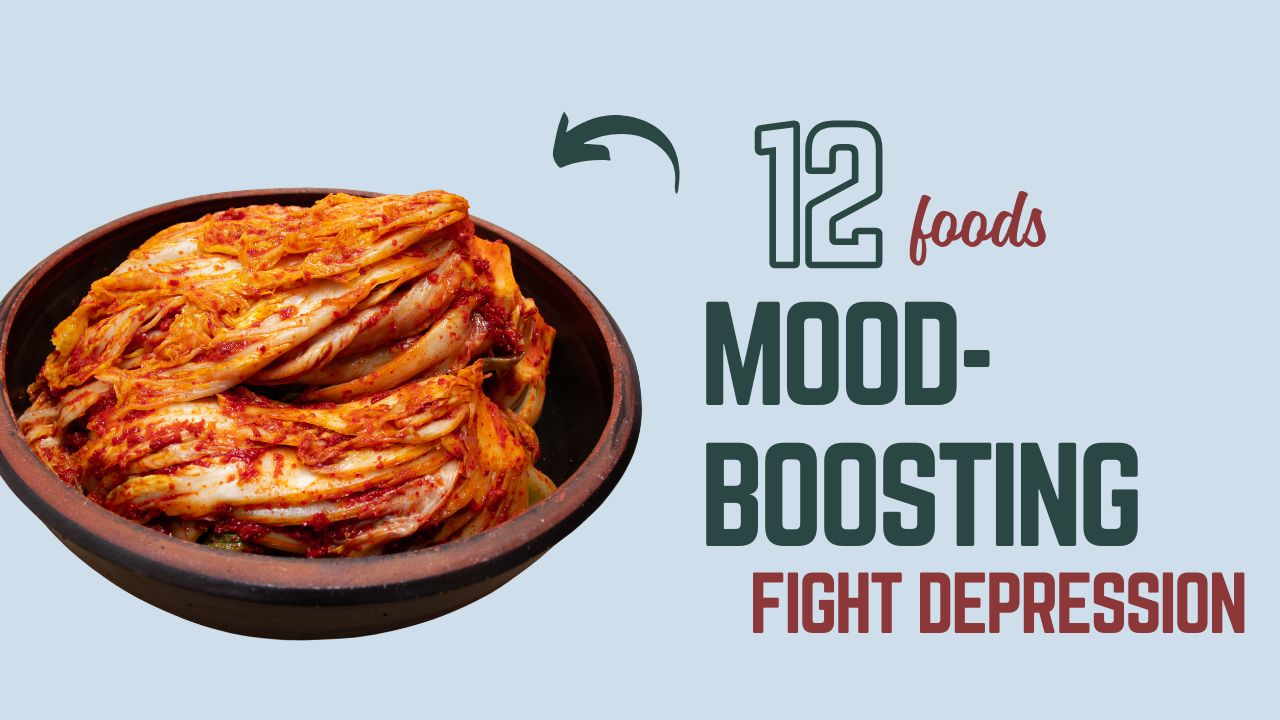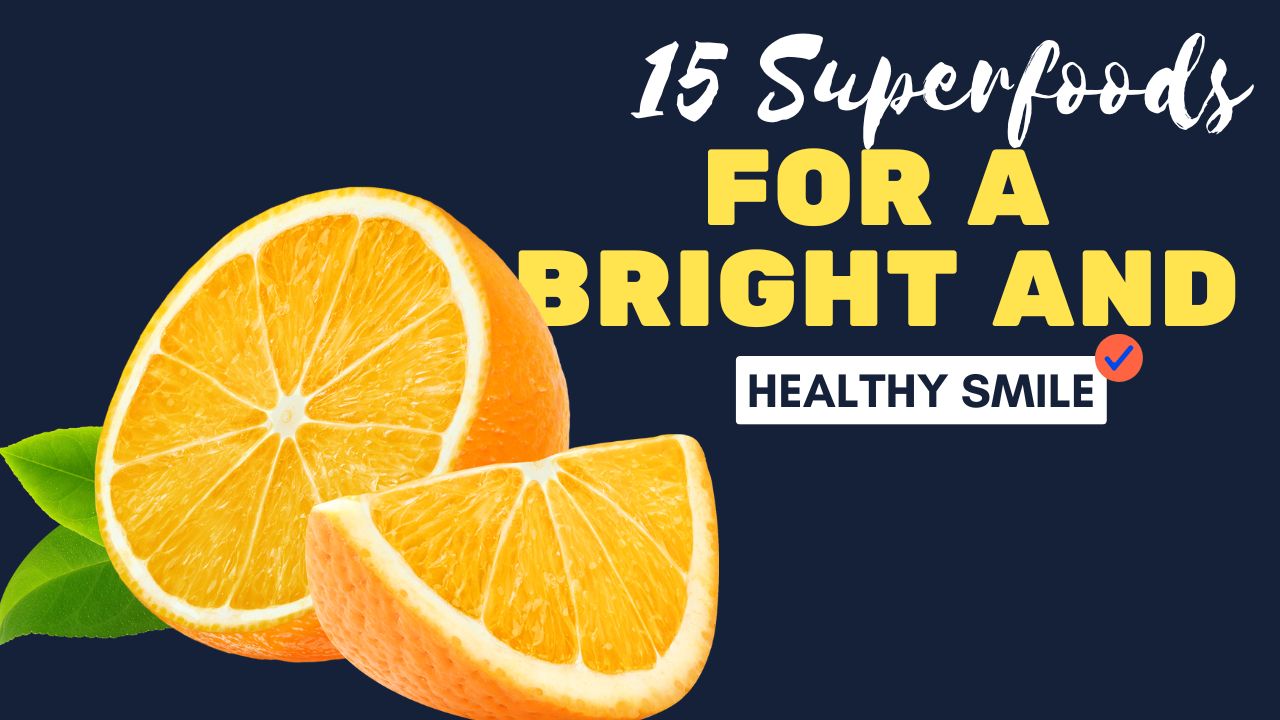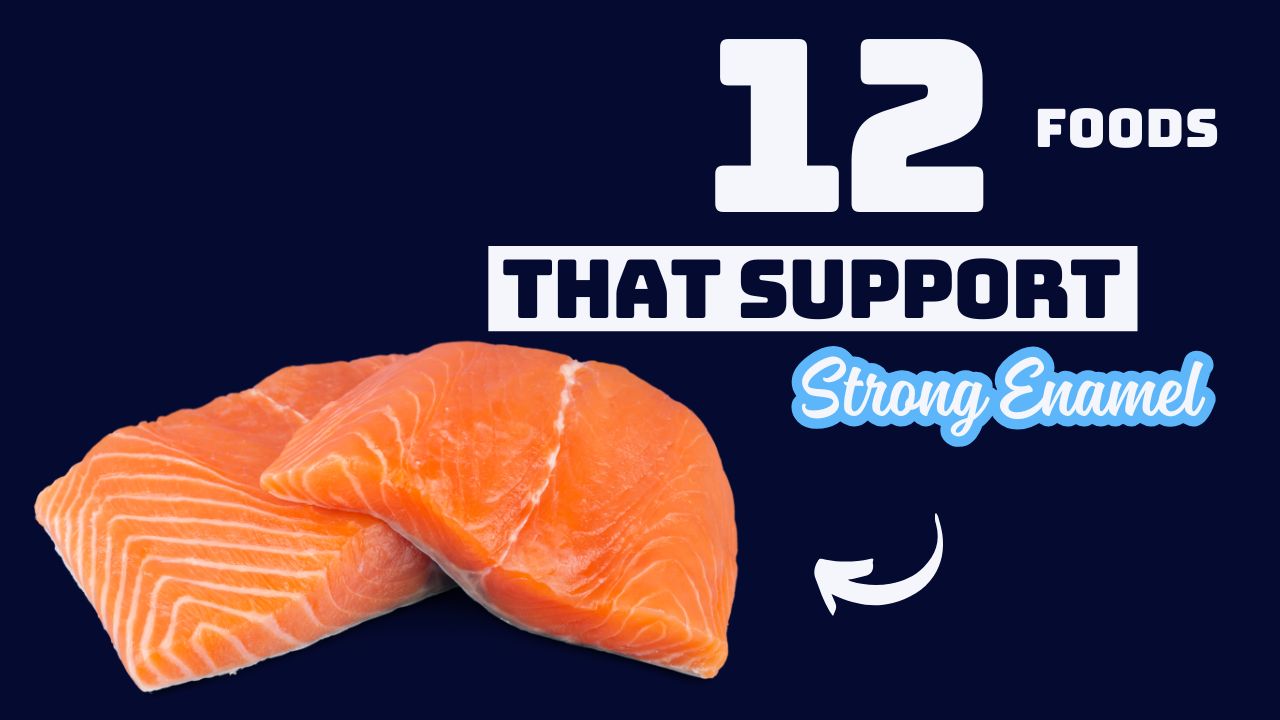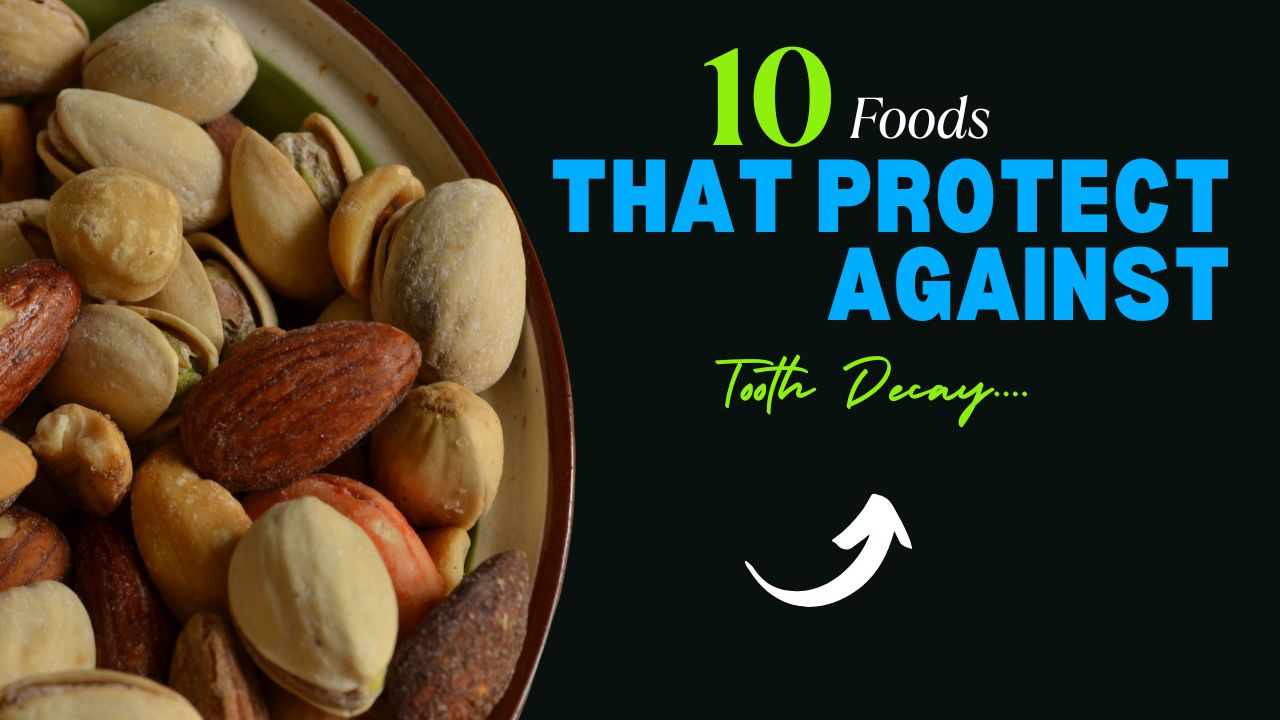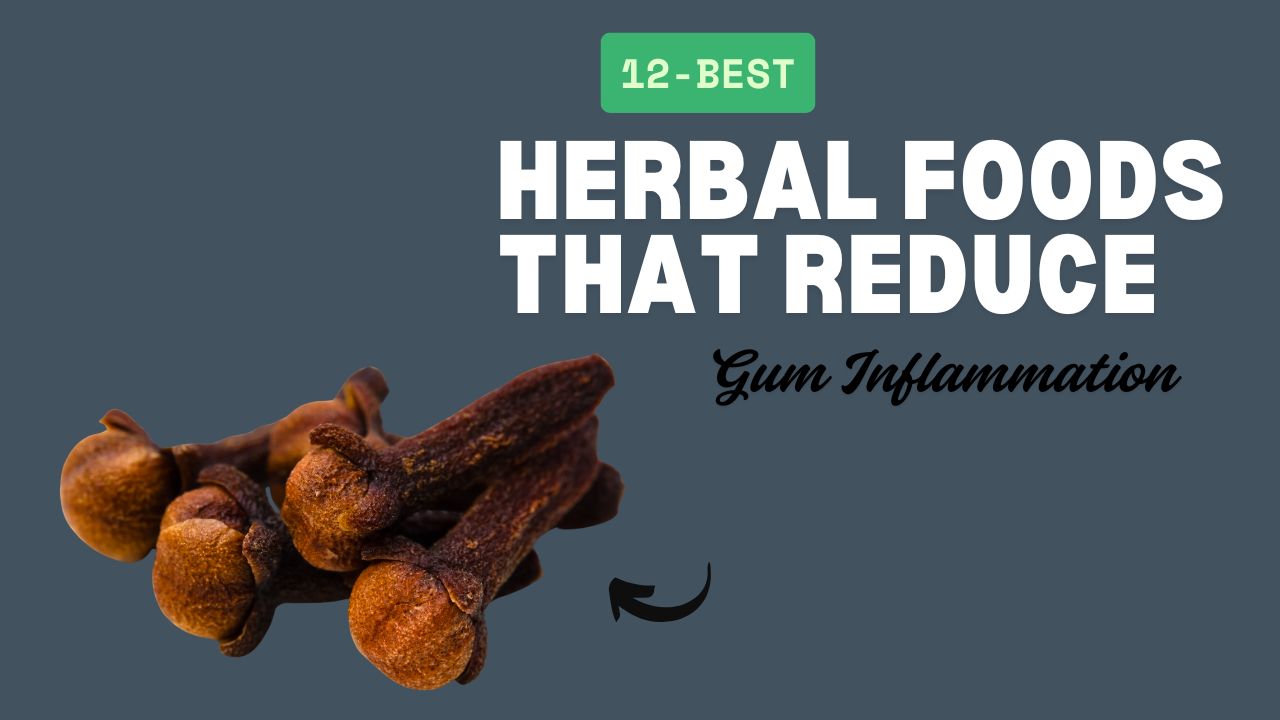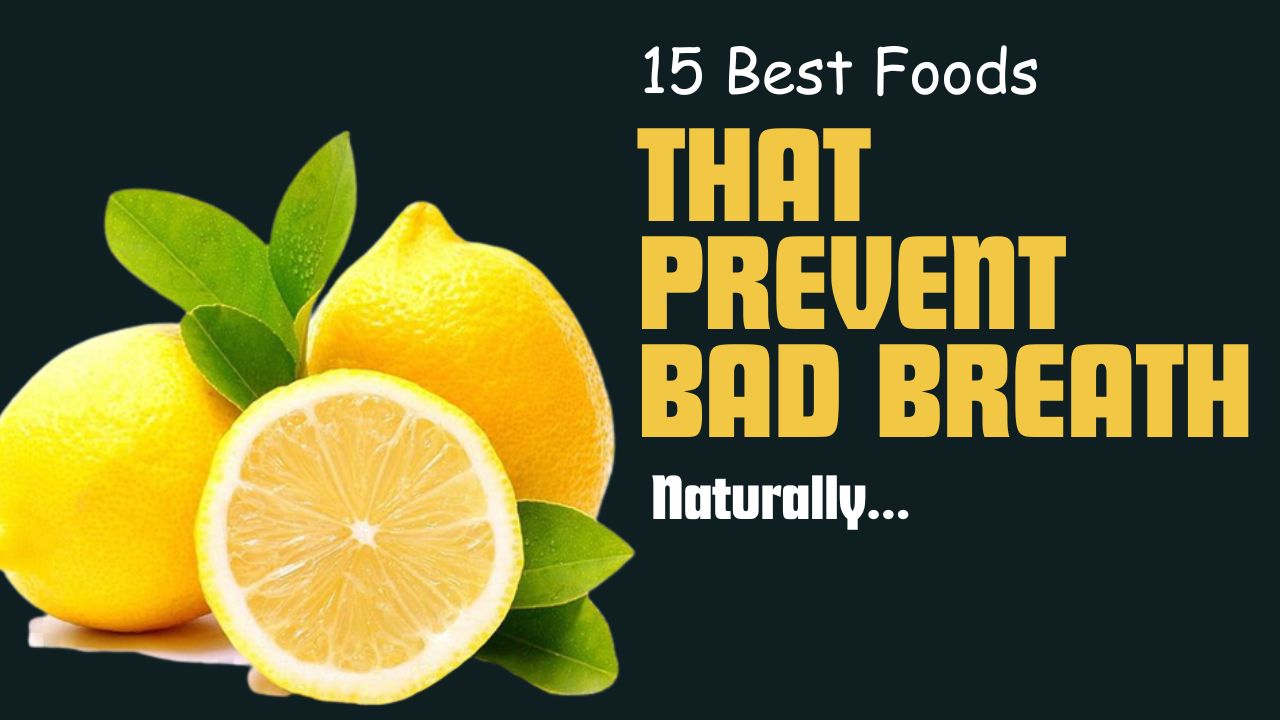Have you ever felt self-conscious during a conversation because of bad breath? You’re not alone—studies suggest that almost 50% of adults experience bad breath (halitosis) at some point.
While mouthwash and mints may offer quick fixes, they only mask the odor temporarily. The real secret to fresh breath often lies in your diet.
Do you know? Certain foods act like natural cleansers for your mouth, reducing odor-causing bacteria, increasing saliva production, and neutralizing compounds that cause bad breath.
Instead of constantly reaching for chewing gum, you can make small dietary changes that naturally freshen your breath while boosting your overall health.
In this post, we’ll explore 15 foods that prevent bad breath naturally. You’ll learn:
- Why these foods are effective in fighting halitosis
- The best ways to eat or use them
- Who should eat or avoid them
- Storage and buying tips
- Possible side effects (if any)
Let’s dive into the fresh and natural solutions hiding in your kitchen!
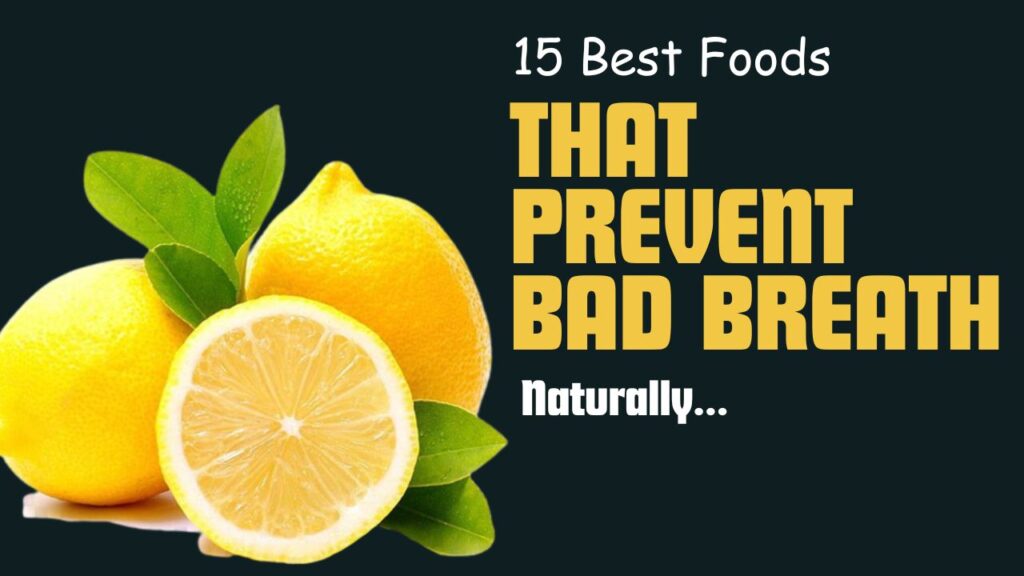
Table of Contents
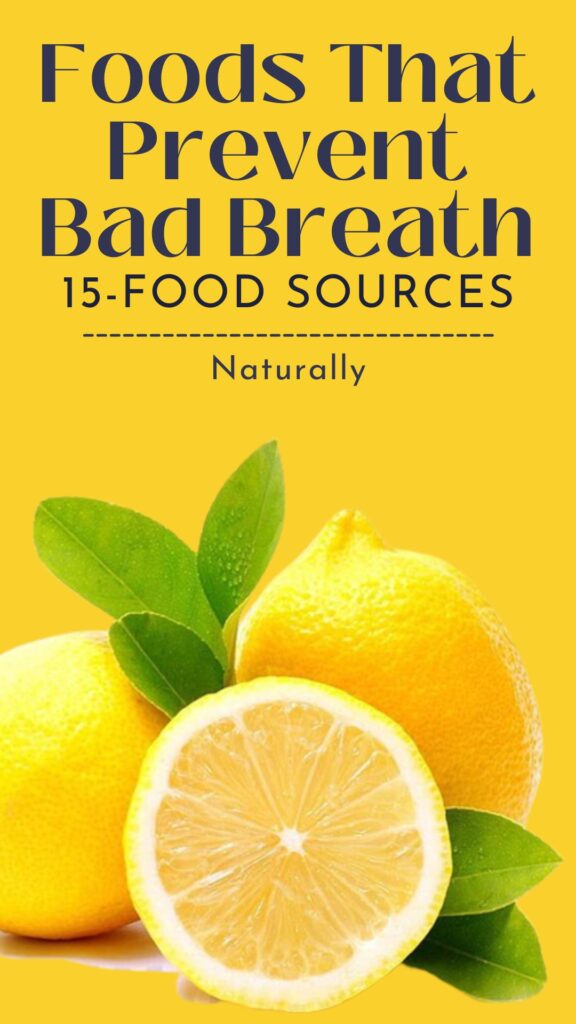
15 Foods That Help Reduce Bad Breath
1. Apples
Crunchy and refreshing, apples are nature’s toothbrush. Their high water content and fibrous texture help scrub away plaque and bacteria from the teeth and tongue, which are common culprits behind bad breath.
Best Ways to Eat or Use It
- Eat raw as a snack
- Add to salads for crunch
- Blend into smoothies with spinach or kale
Who Should Eat / Avoid
- Good for: people with dry mouth (stimulates saliva), kids, weight-watchers
- Avoid if: you have fructose intolerance or sensitive stomach to high-fiber fruits
Storage & Buying Tips
- Choose firm, bruise-free apples
- Store in the refrigerator crisper drawer for up to 4 weeks
Do’s & Don’ts
✅ Do: eat raw with the skin for maximum fiber
❌ Don’t: rely on apple juice—it contains sugar without the scrubbing effect
Possible Side Effects
- Excessive intake may cause bloating in sensitive individuals
2. Yogurt
Yogurt is rich in probiotics, which balance oral bacteria and reduce hydrogen sulfide, a major cause of foul odor.
Best Ways to Eat or Use It
- Consume plain, unsweetened yogurt
- Mix with fruits or honey for natural sweetness
- Use as a base for smoothies
Who Should Eat / Avoid
- Good for: people with digestive issues, those prone to halitosis
- Avoid if: lactose intolerant or allergic to dairy
Storage & Buying Tips
- Buy plain yogurt without added sugars
- Store in the refrigerator and consume within a week of opening
Do’s & Don’ts
✅ Do: opt for Greek yogurt for more probiotics
❌ Don’t: buy flavored versions—they often contain high sugar
Possible Side Effects
- May cause digestive discomfort if you are lactose intolerant
3. Parsley
Often used as a garnish, parsley is a powerful natural deodorizer. It contains chlorophyll, which neutralizes mouth odors.
Best Ways to Eat or Use It
- Chew fresh parsley leaves after meals
- Blend into green juices or smoothies
- Add chopped parsley to salads or soups
Who Should Eat / Avoid
- Good for: anyone looking for a natural breath freshener
- Avoid if: you’re on blood-thinning medications (parsley is high in vitamin K)
Storage & Buying Tips
- Choose bright green, firm leaves
- Store in the refrigerator wrapped in damp paper towels
Do’s & Don’ts
✅ Do: chew raw for immediate effect
❌ Don’t: rely on dried parsley—it loses much of its freshening power
Possible Side Effects
- In large amounts, it may cause digestive irritation
4. Green Tea
Green tea is rich in polyphenols that kill sulfur-producing bacteria and reduce oral odor.
Best Ways to Eat or Use It
- Drink freshly brewed green tea
- Use as a base for smoothies
- Chill and drink as iced green tea
Who Should Eat / Avoid
- Good for: coffee drinkers who want a lower-acid alternative
- Avoid if: sensitive to caffeine or on blood-thinning medications
Storage & Buying Tips
- Buy loose-leaf green tea or high-quality tea bags
- Store in an airtight container away from light and moisture
Do’s & Don’ts
✅ Do: drink without added sugar
❌ Don’t: overbrew—this makes it bitter
Possible Side Effects
- Excessive intake may cause insomnia or stomach irritation
5. Carrots
Carrots, like apples, are crunchy and help remove plaque from teeth while boosting saliva flow.
Best Ways to Eat or Use It
- Snack on raw carrot sticks
- Add to salads and stir-fries
- Juice fresh carrots
Who Should Eat / Avoid
- Good for: kids, those with dry mouth
- Avoid if: you have digestive issues with raw veggies
Storage & Buying Tips
- Look for firm, bright orange carrots
- Store in a refrigerator vegetable drawer
Do’s & Don’ts
✅ Do: eat raw for best effect
❌ Don’t: rely on carrot juice alone
Possible Side Effects
- Excessive intake may cause skin yellowing (carotenemia)
6. Citrus Fruits (Oranges, Lemons, Grapefruits)
Citrus fruits stimulate saliva and their vitamin C helps fight bacteria.
Best Ways to Eat or Use It
- Eat fresh oranges or grapefruits
- Add lemon juice to water
- Use in fruit salads
Who Should Eat / Avoid
- Good for: people prone to dry mouth
- Avoid if: you have acid reflux or sensitive teeth
Storage & Buying Tips
- Choose firm, heavy fruits with smooth skin
- Store at room temperature or refrigerate for longer shelf life
Do’s & Don’ts
✅ Do: drink lemon water in the morning
❌ Don’t: overdo citrus—it may erode tooth enamel
Possible Side Effects
- Excess acidity may cause stomach upset
7. Celery
Celery is another water-rich, crunchy veggie that cleanses the mouth and stimulates saliva.
Best Ways to Eat or Use It
- Snack on raw celery sticks
- Add to soups and salads
- Dip in hummus or yogurt
Who Should Eat / Avoid
- Good for: people with dry mouth, dieters
- Avoid if: you have celery allergies
Storage & Buying Tips
- Choose crisp, bright green stalks
- Store in a sealed container with water in the fridge
Do’s & Don’ts
✅ Do: eat raw for crunch
❌ Don’t: store unwrapped for too long—it wilts quickly
Possible Side Effects
- Can cause allergic reactions in sensitive people
8. Fennel Seeds
Fennel seeds act like natural breath mints, reducing odor and stimulating saliva.
Best Ways to Eat or Use It
- Chew raw fennel seeds after meals
- Brew fennel tea
- Add to curries or soups
Who Should Eat / Avoid
- Good for: anyone seeking quick fresh breath
- Avoid if: pregnant (in large amounts) or allergic to fennel
Storage & Buying Tips
- Store in airtight jars away from light
- Buy whole seeds for maximum freshness
Do’s & Don’ts
✅ Do: chew a teaspoon after meals
❌ Don’t: overconsume—it may upset the stomach
Possible Side Effects
- May cause allergic reactions in rare cases
9. Ginger
Ginger contains compounds that neutralize sulfur compounds in the mouth.
Best Ways to Eat or Use It
- Brew fresh ginger tea
- Add grated ginger to meals
- Blend into smoothies
Who Should Eat / Avoid
- Good for: people with nausea and halitosis
- Avoid if: you have ulcers or acid reflux
Storage & Buying Tips
- Choose firm ginger roots with smooth skin
- Store in the refrigerator or freeze for long-term use
Do’s & Don’ts
✅ Do: use fresh ginger for best results
❌ Don’t: rely on sugary ginger candies
Possible Side Effects
- Too much ginger may cause heartburn
10. Spinach
Spinach is rich in chlorophyll, which helps neutralize odors.
Best Ways to Eat or Use It
- Add fresh spinach to salads
- Blend into smoothies
- Steam lightly as a side dish
Who Should Eat / Avoid
- Good for: people with bad breath and anemia
- Avoid if: prone to kidney stones (high in oxalates)
Storage & Buying Tips
- Select crisp, dark green leaves
- Store in the refrigerator in a plastic bag
Do’s & Don’ts
✅ Do: eat fresh or lightly cooked
❌ Don’t: overcook—it loses nutrients
Possible Side Effects
- Excessive intake may cause kidney issues in sensitive individuals
11. Mint Leaves
Mint is one of the most popular natural remedies for fresh breath.
Best Ways to Eat or Use It
- Chew fresh mint leaves
- Brew mint tea
- Use as garnish in salads and drinks
Who Should Eat / Avoid
- Good for: anyone needing instant freshness
- Avoid if: prone to acid reflux (may relax esophageal sphincter)
Storage & Buying Tips
- Pick fresh, green leaves
- Store wrapped in damp cloth in refrigerator
Do’s & Don’ts
✅ Do: chew raw for quick effect
❌ Don’t: depend solely on mint candies—they’re high in sugar
Possible Side Effects
- May trigger heartburn in some individuals
12. Cinnamon
Cinnamon contains essential oils that kill odor-causing bacteria.
Best Ways to Eat or Use It
- Add cinnamon to tea or coffee
- Sprinkle on oatmeal or smoothies
- Chew a cinnamon stick (mild)
Who Should Eat / Avoid
- Good for: people with halitosis caused by bacteria
- Avoid if: you have liver issues (in large amounts)
Storage & Buying Tips
- Buy whole cinnamon sticks or fresh powder
- Store in airtight containers
Do’s & Don’ts
✅ Do: use sparingly in food
❌ Don’t: consume in large amounts—it may irritate
Possible Side Effects
- Excess may cause liver irritation
13. Cucumber
Cucumber’s water content and mild antibacterial properties make it effective for fresh breath.
Best Ways to Eat or Use It
- Eat raw slices
- Add to water for a refreshing drink
- Mix in salads
Who Should Eat / Avoid
- Good for: summer refreshment, hydration
- Avoid if: you have cucumber allergy (rare)
Storage & Buying Tips
- Choose firm, dark green cucumbers
- Store in the refrigerator for up to a week
Do’s & Don’ts
✅ Do: eat with skin for nutrients
❌ Don’t: store for too long—it loses freshness
Possible Side Effects
- May cause bloating in some individuals
14. Almonds
Almonds act as natural scrubbers for teeth and provide protein to keep blood sugar stable (reducing bacterial growth).
Best Ways to Eat or Use It
- Snack on raw almonds
- Add to yogurt or oatmeal
- Blend into almond butter
Who Should Eat / Avoid
- Good for: vegetarians, weight-watchers
- Avoid if: you have nut allergies
Storage & Buying Tips
- Store in airtight containers in a cool, dry place
- Refrigerate for longer shelf life
Do’s & Don’ts
✅ Do: eat raw and unsalted
❌ Don’t: eat too many—they’re calorie dense
Possible Side Effects
- May cause digestive discomfort in excess
15. Water
Sometimes the simplest solution is the best. Water helps wash away food particles and bacteria, while preventing dry mouth (a major cause of bad breath).
Best Ways to Eat or Use It
- Sip throughout the day
- Rinse mouth after meals
- Add lemon or cucumber slices for extra freshness
Who Should Eat / Avoid
- Good for: everyone
- Avoid if: none (unless medically restricted)
Storage & Buying Tips
- Use clean, filtered water
- Store in reusable bottles for convenience
Do’s & Don’ts
✅ Do: stay hydrated consistently
❌ Don’t: replace water with sugary drinks
Possible Side Effects
- None, unless overhydrated in extreme cases
Conclusion
Bad breath can be embarrassing, but the solution doesn’t always have to come from mouthwashes or mints.
By incorporating these 15 natural foods—from crunchy apples to refreshing parsley and hydrating water—you can enjoy fresher breath, better oral hygiene, and overall improved health.
Next time you’re grocery shopping, add a few of these breath-friendly foods to your cart. Try them in smoothies, salads, or as quick snacks, and notice the difference they make.
What about you? Which of these foods do you already use to keep your breath fresh? Share your favorite recipe or tip in the comments below!
Frequently Asked Questions (FAQs)
Can food really help prevent bad breath?
Yes. Certain foods like apples, yogurt, parsley, and green tea naturally fight bacteria, stimulate saliva production, and neutralize odor-causing compounds in the mouth.
Which food is the best for instant fresh breath?
Chewing fresh parsley, mint leaves, or fennel seeds can provide quick relief from bad breath naturally.
Are there foods that make bad breath worse?
Yes. Garlic, onions, coffee, alcohol, and sugary foods often worsen halitosis. Limiting them can help keep your breath fresh.
How much water should I drink to avoid bad breath?
Drinking 8–10 glasses of water daily helps keep your mouth hydrated and washes away odor-causing bacteria.
Can eating yogurt every day improve my breath?
Plain, unsweetened yogurt with probiotics can reduce odor-causing bacteria when consumed regularly. Avoid sugary versions.
Do citrus fruits help freshen breath?
Yes. Citrus fruits like oranges and lemons stimulate saliva production and provide vitamin C, which helps fight bacteria. However, overconsumption may erode tooth enamel.
Is chewing gum better than eating these foods?
Chewing gum offers temporary freshness, but natural foods improve oral hygiene and provide lasting benefits.
Can bad breath be a sign of a health problem?
Sometimes. Persistent bad breath may indicate gum disease, digestive issues, or other medical conditions. If it doesn’t improve with diet and hygiene, consult a dentist or doctor.
How soon can I notice results after eating these foods?
Some foods like parsley, fennel seeds, or mint work instantly, while others like yogurt and green tea improve breath gradually with consistent use.
Can children eat these foods for fresh breath?
Yes. Most of these foods are safe and healthy for children, but avoid foods they’re allergic to and limit choking hazards like whole almonds.
